A Small Light bosses break down the importance of the show’s queer and feminist themes
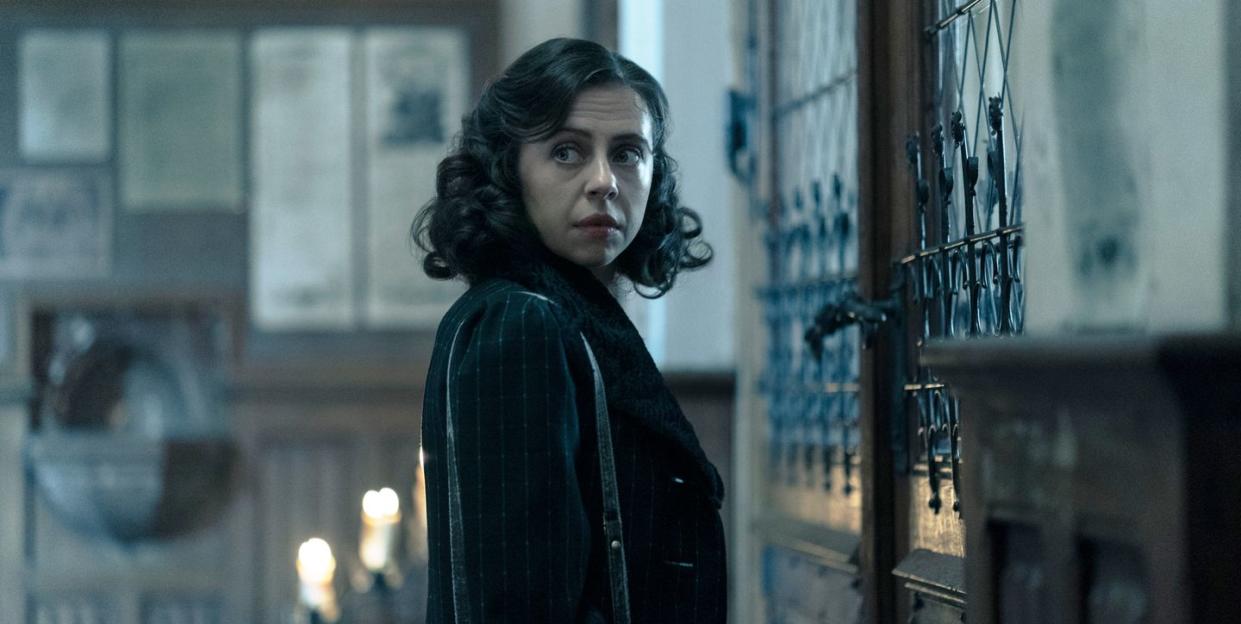
- Oops!Something went wrong.Please try again later.
- Oops!Something went wrong.Please try again later.
Rainbow Crew is an ongoing interview series that celebrates the best LGBTQ+ representation on screen. Each instalment showcases talent working on both sides of the camera, including queer creatives and allies to the community.
Next up, we're speaking to A Small Light creators Susanna Fogel, Tony Phelan and Joan Rater.
A Small Light spoilers follow
Susanna Fogel, Tony Phelan and Joan Rater’s retelling of the Anne Frank story is like no other.
Without trying, there emerge themes of feminism, the scandalous taboos of divorce, and queerness – themes so ahead of what was deemed acceptable for the story's time, yet rooted in truth. That’s because A Small Light is more than just Anne Frank's story.
It’s also the story of Miep and Jan Gies, of their unintentional heroism and compassion that gives us a deeper insight into a history we thought we knew.
In an exclusive interview with Digital Spy A Small Light bosses explain why they it was their responsibility to share this story though a progressive lens.
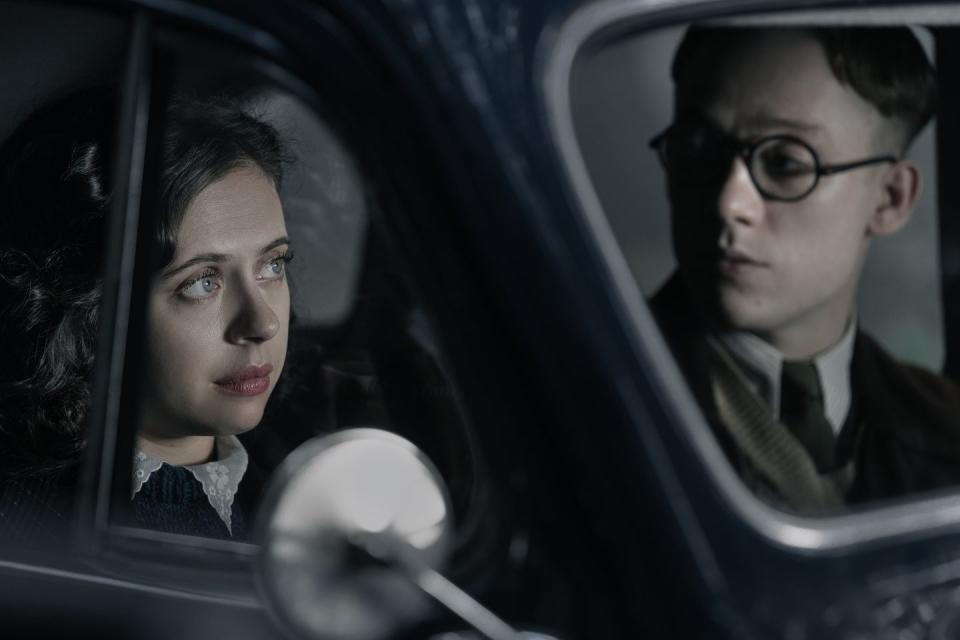
The story of Anne Frank has been told and retold and retold, but this isn't quite that. What kind of other nuances did you want to bring to that story to open people's eyes?
Susanna Fogel: I think we liked just the idea that the accounts of Anne Frank's particular story are told through her very unique perspective as a teenager. It's what makes the story special. But also the lens through which she's looking at these events is a teenage lens. Then we hear these very serious, historical accounts of the war that are sort of very adult and very staid and historical.
In between, there was this twenty-something coming of age, figuring out her own power, and the limits of what she was able to do – like, breaking through those barriers, and finding that she was figuring out what she actually capable of, and also falling in love, and also having these other things.
It was just a unique perspective that we hadn't seen, but that also felt really youthful in its own way, and filled with the vibrancy and vitality that I think is why Anne's story has become canon, you know?
So we wanted to show this through a young woman, and have that perspective, not as young as a teenager, and not limited to the annex, but to be able to compare the world outside and the world inside; to see it from this holistic perspective; but also the perspective of a young, funny, vibrant, relatable person.
How did you come to the story of Miep and Jan?
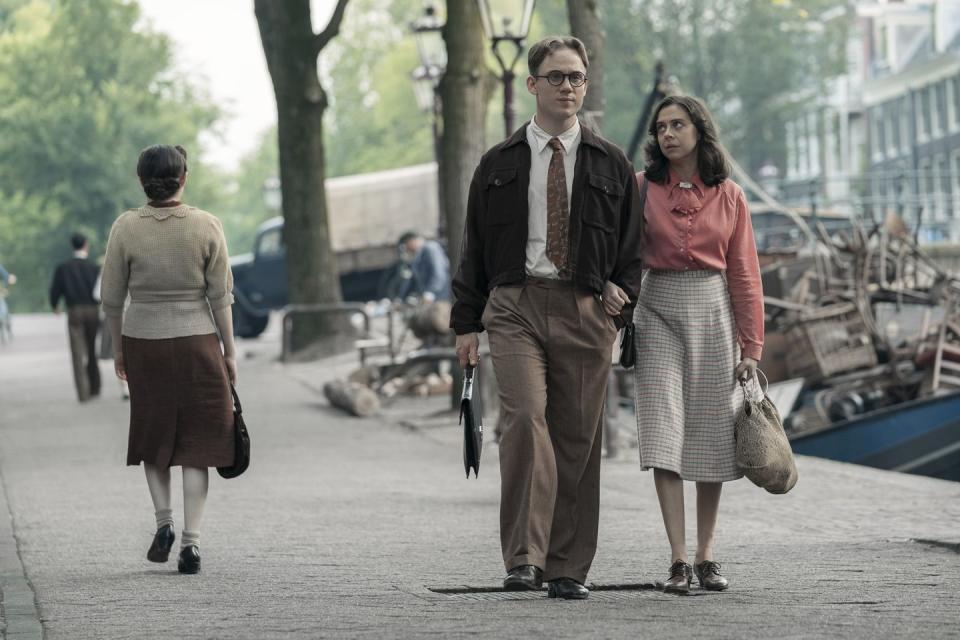
Joan Rater: Tony and I have always been, like many people, interested in Anne Frank's story.
When a new movie or a new thing would come out, we would always watch it, and when Anne Frank Remembered, which is a documentary, came out in the '90s, we watched it, and Miep (Bel Powley) was featured in it, talking about her role in finding the diary, and being an ambassador of the diary.
She was such an interesting character. We noticed it back in the '90s and when we went to Amsterdam about six or seven years ago with our family, just her being a young person, saying yes to Otto Frank immediately, struck us as an interesting way into a story, because you say yes, but then you probably go home, and you go, "Wait…"
Tony Phelan: "What did I agree to?"
Susanna Fogel: I had heard about Miep. I just knew her name through the diary, and also just growing up Jewish. It was like a story – and my mom had lived in Holland for a while. So I knew her name, and I knew Jan's name.
I think I always pictured them as, you know, 90-somethings who had done a noble thing because when I was a kid, they were that age.
Then as I got older, and kind of realised that actually she was young, and I became older than she was at the time, I was like, "Oh, actually, she was just like a young person." That became really interesting to me.
I think part of what we want to do with the show is to show not just the greatest hits of the most heroic things that they did, but also all of the real complicated feelings they had about doing what they did.
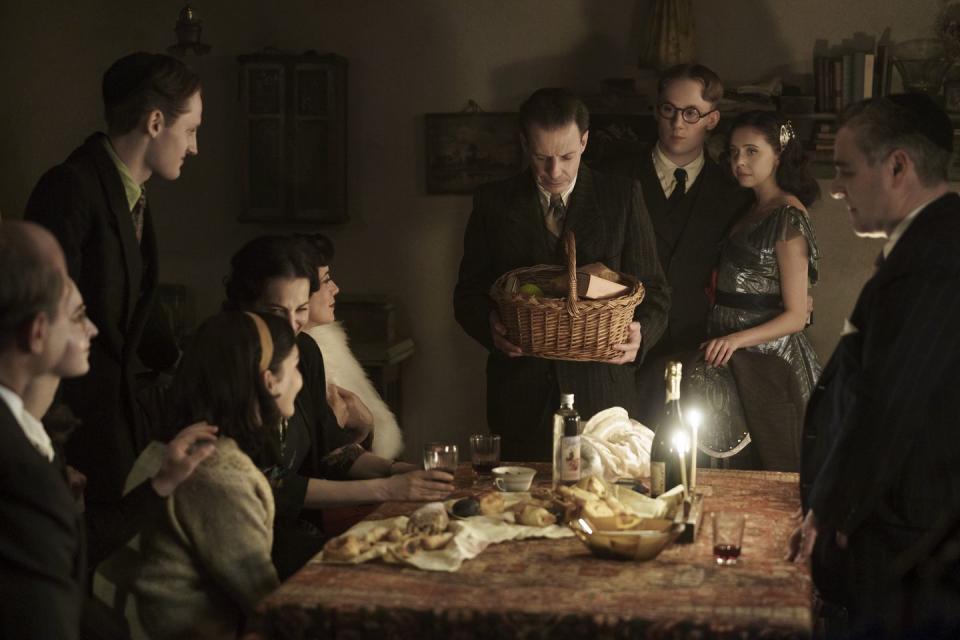
Like the fact that as heroic as a person can be, they still go home, and are tired at the end of the day, or they argue with their partners, or their deepest, darkest thoughts—
Joan Rater: Their mother is mad. "Why do you never come visit us anymore?"
Susanna Fogel: They fight with their friends and just moments of wondering: "Oh my God. I have a cold today. I don't feel like going over there. I just don't feel like it. I know I have to do it. I know it's the right thing but, man, I'm really tired. I wish I could just take a nap." Those really real feelings that are definitely a part of people doing these noble things.
For an audience to see those real human feelings about doing heroic things, it makes them feel like they could be a Miep or Jan (Joe Cole), which is what Miep and Jan wanted.
They didn't want to bec put up on a pedestal for people to say, "Oh my God, we'll never be that noble." They wanted people to see themselves in them.
You guys cover some themes that would be considered quite progressive for that '30s/'40s era. There's divorce, homosexuality, even just women wanting to have careers, and Miep's forwardness with Jan. What was the importance behind exploring those themes across in A Small Light?
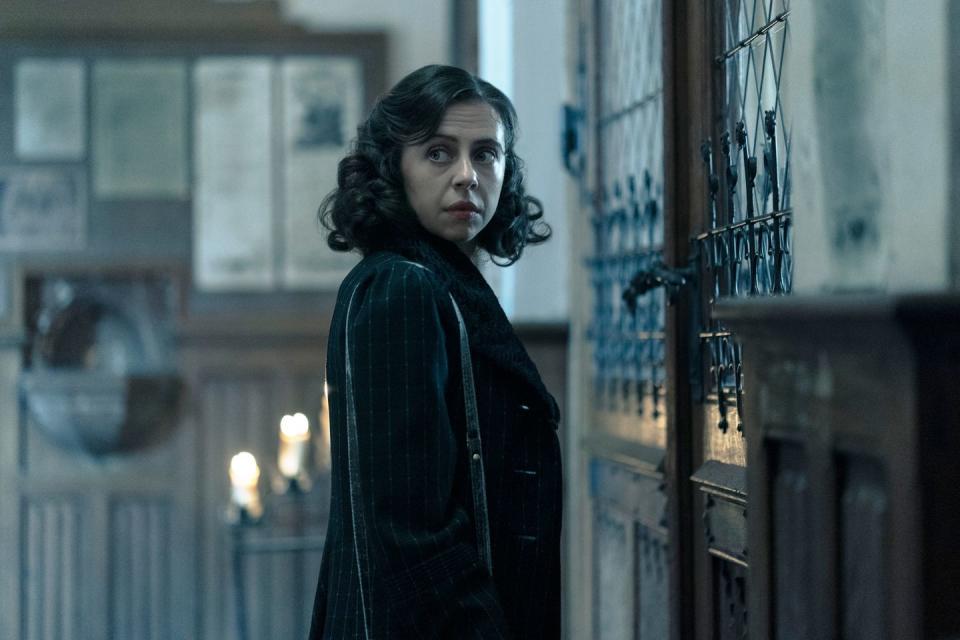
Joan Rater: Well, they were real, first of all.
Miep was interesting to us for a lot of reasons, but those were some of the reasons. Here was this, young woman who, from her account, had no interest in getting married.
She loved Jan, but getting married, and being a wife, and having a child, were not her drive. You know what I mean? That was progressive, and we thought that was really interesting—
Susanna Fogel: But true. I feel like [for] a lot of shows or movies that would be what the show is about. It would be about a woman who was going up against some system that made her do a thing, and she decided to not.
But this is a woman doing a whole other set of things that have nothing to do with how progressive she was in these social ways. But she just happened to be that.
Tony Phelan: Also you come upon a story like Café 't Mandje and Willem Arondéus, and the fact that the first gay bar in Europe was this hotbed of the Resistance. In your research, you read that, and you're like, "Well, we have to tell that story."
Was that kind of like – I want to call it almost like a speakeasy that you kind of feed into the story?
Tony Phelan: You'll see, when you get into episode five, that place becomes the breeding ground for this big action that they're going to take against the Nazis.
I read this quote because William was arrested afterwards, and put to death by the Nazis, and he said to his lawyer, "Let it be known that homosexuals are not cowards." He said this in 1944, and those people were an integral part of that story.
Why was this something that you were really keen on bringing to the foreground in a story that people perceive to be about Anne Frank?
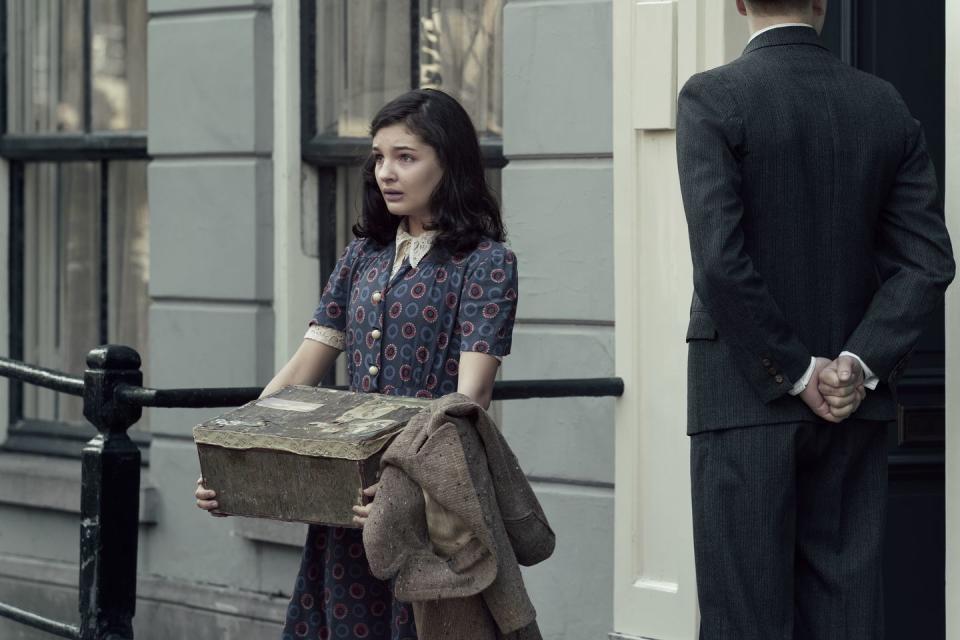
Joan Rater: Miep and Jan were just two people who were doing Resistance work but in Amsterdam, a lot of people were and we wanted to talk about a lot of different people doing that kind of work. So the idea of Café 't Mandje, where it was this homosexual bar, and in the basement they had guns—
Tony Phelan: They were hiding people upstairs.
Joan Rater: They were hiding people upstairs. So Nazis weren't supposed to go to the Red Light District because sex—
Tony Phelan: And also they were morally pure.
Joan Rater: But they would. And so, when Nazis were in there, the owner of the bar would turn on the owl light to warn people not to come in because Nazis were in. So there were all these amazing things about this place that we wanted to talk about.
Miep had these five brothers, right? We don't know that one of them was gay. But as Tony likes to say…
Tony Phelan: Statistically, one of them had to be gay.
Susanna Fogel: At least curious.
Joan Rater: That was a way to bring Café 't Mandje, and to have Jan be sent there by his boss to get help. So we just used that story that we wanted to tell. We wanted to tell this story of Willem Arondéus, and that action of burning the records office.
We know that Jan and Miep didn't actually go to the burning of the records office but we put them adjacent to it.
Tony Phelan: And, also, what strikes me personally is, in certain parts of the United States now, there is this violent, virulent anti-trans mania going on and I think there is a belief from some people that this is a new thing. That homosexuality is a new thing, that people being transgender is a new thing.
One of our responsibilities as storytellers is to say: "This is not a new thing. This has always been there. It has always been a part of pretty much everyone's family. It just wasn't talked about as much."
A Small Light is out on Disney+.
You Might Also Like

